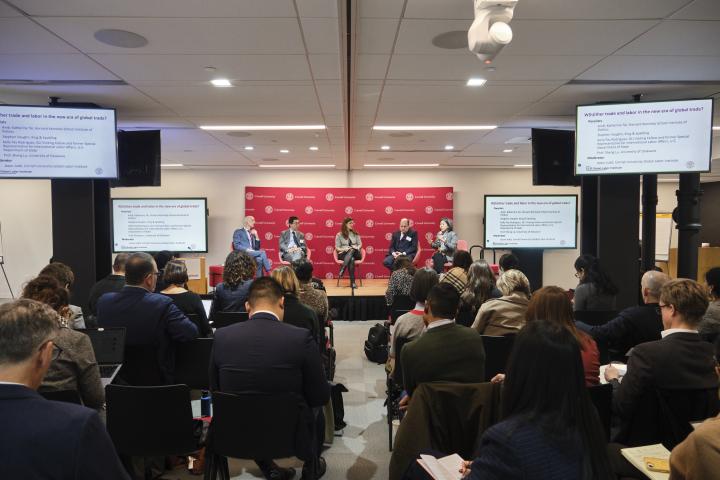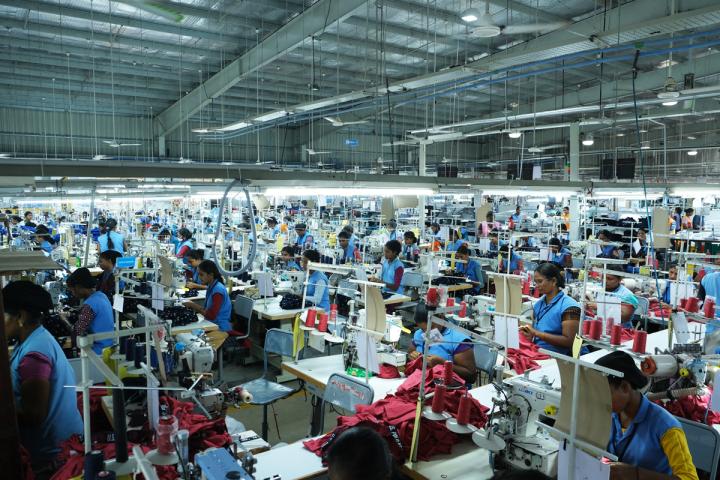
ILR and ILO Make Suggestions to Help Fishers in Southeast Asia
The pandemic has exacerbated already existing inequalities in the international fishing industry and a new brief from the New Conversations Project and the ILO’s Ship to Shore Rights Project argues that policies must be put into place to ensure that support reaches the workers and enterprises needing it most.
In the paper, “Rough Seas: COVID's impact on work in fishing” ILR researchers and the ILO present the impact of COVID-19 on workers in commercial fishing industry in Southeast Asia, home to some of the largest fisheries and fleets in the world.
A presentation of the findings and a debate about their meaning will be hosted by Cornell’s New Conversation Project on Tuesday, April 26 at 10 p.m. (April 27 at 9 a.m. Bangkok). The panel will include individuals from the New Conversation Project, the International Labour Organization, Fishers’ Rights Network/ITF, and the Thai Tuna Industry Association, among others.
Click here to register.
By analyzing trade and employment data, and conducting interviews with 10 key informants – including representatives of international seafood buyers who source from countries that make up the ILO Ship to Shore Rights Project’s implementation area – the researchers found that despite pre-pandemic attention to the industry’s labor practices and promises of reform, inadequacies remain.
This is especially true for migrant fishers in the industry, who regularly endure a lack of protection, researchers said.
“Migrant fishers in Southeast Asia are at the bottom of a long list of workers that governments, employers and global seafood buyers worried about at the outbreak of the COVID-19 pandemic. Fishing and seafood workers already had it bad-- where labor protections and labor law enforcement—for at-home and migrant workers—have been weak,” said Jason Judd, New Conversations Project executive director. “COVID was a sort of stress test for these protections and there’s lots of work to do.”
The paper opens by documenting the problems such as a decline in employment due to temporary port closures, wage theft, lack of personal protective equipment and pandemic relief programs that excluded migrant fishers.
To tackle the COVID-19 crisis, the ILO has proposed a policy framework with four pillars based on international labor standards:
- stimulating the economy and employment
- supporting enterprises, jobs and incomes
- protecting workers in the workplace
- relying on social dialogue for solutions
Additionally, the brief provided 11 recommendations highlighting the specific needs of migrant workers in the fishing and seafood processing sectors:
- Improve collection and disclosure of data on migrant workers employed in the fishing and seafood processing sectors.
- Institutionalize tripartite and civil society consultation in the development and implementation of labor migration governance, particularly during COVID-19 response and recovery.
- Ratify the key international labor standards related to employment of migrant workers in the fishing and seafood processing sectors to address underlying gaps in labor protection.
- Extend labor rights protection to women and men migrant workers regardless of the formality of their employment arrangements.
- Expand the reach of social protection benefits for migrant workers, particularly during COVID-19 response and recovery.
- Remove barriers to accessing protective COVID-19 measures for all women and men migrant workers.
- Ensure the rights to freedom of association and collective bargaining for migrant workers, and address structural barriers to worker empowerment.
- Prevent and remediate wage theft against migrant workers, particularly during COVID‑19 response and recovery.
- Industry associations and private sector compliance initiatives should actively develop and implement COVID-19 response and recovery policies for their workforce.
- Buyers to expand rewards system for suppliers that uphold labor standards through committed sourcing strategies.
- Research and monitor the ongoing pandemic-driven changes in global trade patterns for food and their impacts on the industry and workers.



